 |
| |
e-newsletter of the Centre for Environment Education |
|
|
 |
| January 1-31, 2016 |
|
 |
|
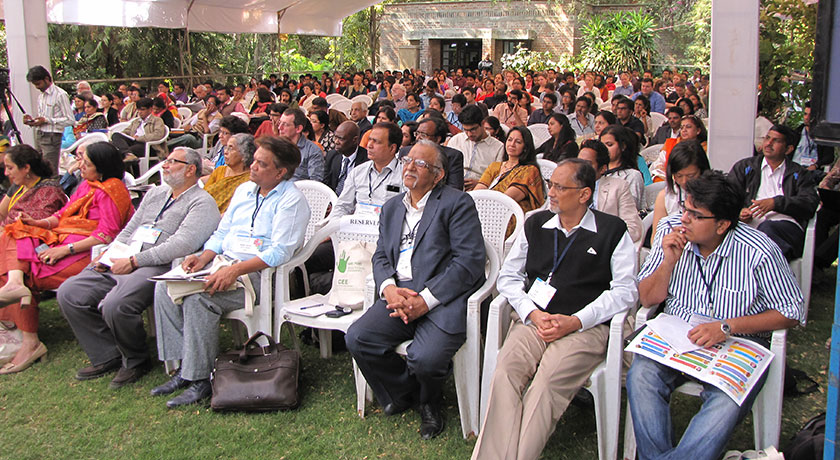 |
| The conference brought together global experience and expertise to highlight and strengthen the role of education in realising the SDGs. |
 |
CEE organises International Conference |
| Puts forth competency framework and recommendations to make education more responsive to addressing SDGs
With a mobilising vision of action towards sustainability, with education as a driver, over 750 participants from 22 countries met at CEE from 11th-13th January, 2016, for the International Conference on ‘Education as a Driver for Sustainable Development Goals’.
Organised by CEE, in partnership with UNESCO, UNEP and the Government of India, the three-day conference brought together global experience and expertise to highlight and strengthen the role of education in realising the Sustainable Development Goals (SDGs). It addressed the role of education in amplifying actions for implementing the 17 SDGs through a range of 20 workshops.
The Conference had working group themes broadly corresponding to the SDGs, and highlighting the role of education in achieving the targets for a sustainable planet. The 17 working groups were organised on the lines of Sustainable Development Goals (SDGs) on themes such as poverty alleviation, sustainability education for achieving food security and promoting sustainable agriculture, ensuring continuum of quality care for healthy lives and well-being, quality education, gender equality and empowerment, sustainable management of water and sanitation, access to sustainable and modern energy, sustainable economic growth, sustainable industrialization and infrastructure, education for equality, sustainable cities and human settlements, sustainable consumption and production, combating climate change and its impacts, conservation and sustainable use of marine and terrestrial ecosystem and resources, justice and peace, and partnerships for implementation.
Over the course of three days, each working group met for nine hours in total to assess the role of education (formal, non-formal and informal learning settings) in addressing the SDG through sharing of case studies, identification of ideas/projects/initiatives to be scaled up, and discussion on the knowledge, skills, attitudes, values and competencies relevant to addressing the SDG. A draft competency framework and recommendations to make education systems more responsive to addressing SDGs, was developed.
The Conference witnessed participation from senior officials from the Ministry of Environment, Forest and Climate Change (MoEF&CC), international ESD experts, environmentalists, academicians, and researchers and students.
For more details, visit E-SDG. Read Outcome Document.
|
 |
|
CEE announces International Conference on 'ESD for transforming Education for Children and Youth' from 16-18
September, 2016 at Ahmedabad, India.
For more details, visit: http://ceeindia.org/esdconf/
|
|
|
 |
|
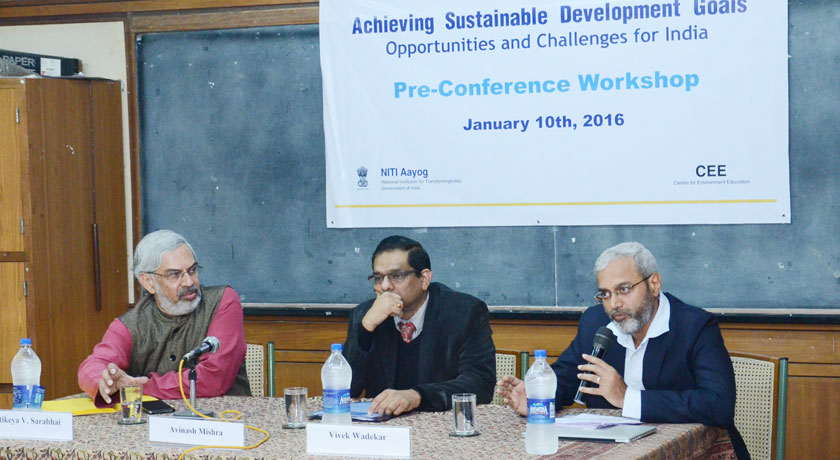 |
| The Niti Aayog workshop focused on measurement, indicators and tracking the progress of SDGs. |
 |
|
Measurement and indicators of SDGs discussed in pre-conference event |
As part of the pre-conference events, workshops and partnerships’ meet were conducted on 10th January, 2016. A national workshop on ‘Achieving Sustainable Development Goals- Opportunities and Challenges for India’ was organised by CEE, in partnership with Niti Aayog. The workshop focused on measurement, indicators and tracking progress of SDGs, and the role of the States in achieving SDGs.
The ‘GUPES Partnerships Forum 2016: Higher Education for Sustainable Development Goals (SDGs)’ meeting witnessed discussions over the contribution of higher education in the implementation of the SDGs, and provided inputs to the Conference in the light of the education-related SDG targets.
A third session on ‘OER Integration in e-Learning Materials on Research Methodology in Education’ for teachers, teacher trainers and material developers was also coordinated by Prof. Mohandas B. Menon and Prof. B. Phalachandra, Wawasan Open University, Malaysia.
|
 |
|
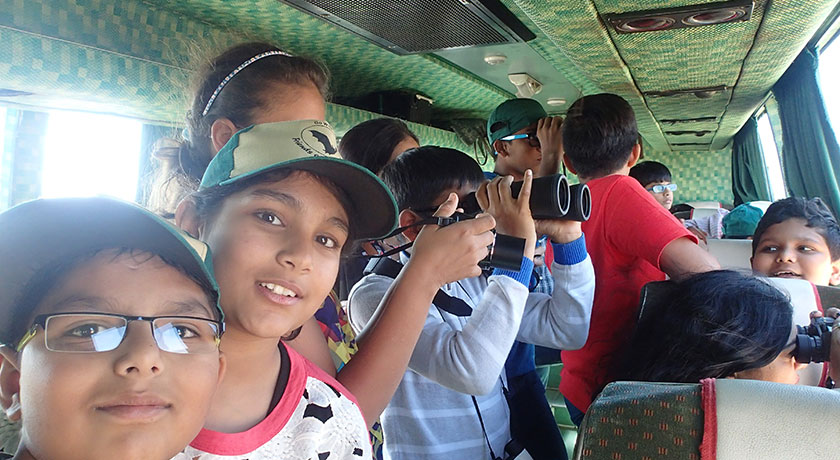 |
| The participants raised various questions as they learned to identify the characteristics of the birds. |
 |
Nature appreciation at Velavadar |
Sundarvan organised a bus safari to The Blackbuck National Park at Velavadar as part of their nature appreciation series. The participants learned during the bus journey to the National Park and excitedly noted and observed animals and birds such as the Common Kestrel, Pallid Harriers, Crested Larks, White-eyed Buzzards, Blackbucks and Blue bulls.
At a stoppage made at a wetland for bird watching, the group saw a large variety of birds including the Common Teal, ‘Brahminy’ Ducks, Purple moorhens, Black-nape Ibises, Pied Kingfisher, Little Grebes, Marsh Harriers, Wood Sandpiper, Common Sandpiper, Black-winged Stilts and Ruffs. With binoculars and cameras to help them, the participants raised various questions as they learned to identify the characteristics of the birds.
|
 |
|
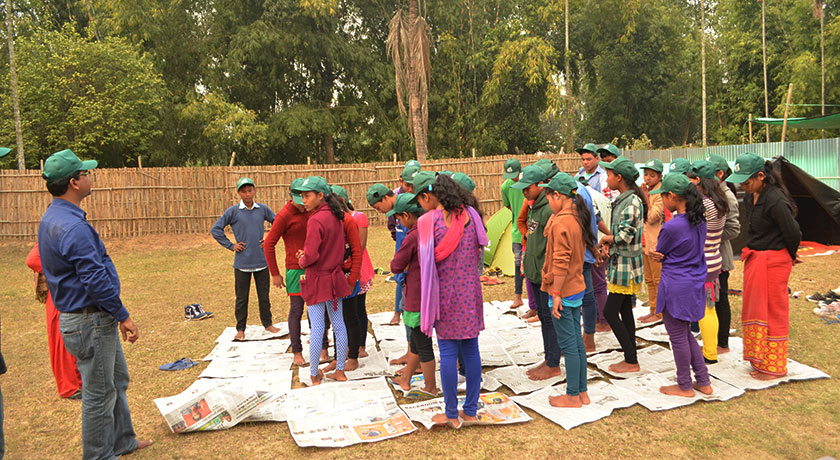 |
|
| The visit broadened the students’ understanding about the Wetland ecosystem, forest resources and biodiversity. |
 |
Nature camps in Assam |
CEE North East, in collaboration with Assam Science Technology and Environment Council (ASTEC), the State Nodal Agency for NGC Eco-clubs, and Aitijya (The Heritage), the local facilitating agency, organised five residential nature camps from 30th January to 9th February, 2016, in Goalpara district, Assam. Students from Kalyanpur High School, P.R. Government High School, Dolgoma High School, Krishnai Madrassa High School and Kalaguru Bishnu Rabha High School took part in these camps.
Located at the foothills of Fofonga Reserve Forest, the site saw a plethora of activities conducted with the students. Early morning visit to the wetland, Urpad Beel, sighting the Hoopoe, Cotton pygmy goose, Pintail, Asian openbill, Common pochard, Pond heron and Ruddy shelduck, and learning to identify them, was a joyous experience for the students. The visit broadened their understanding about the Wetland ecosystem, forest resources and biodiversity, and the rationale behind its conservation.
An initiative in environment education of the Ministry of Environment, Forest and Climate Change, the National Nature Camping Programme (NNCP) aims at creating greater awareness, understanding and empathy of children with, and for, the environment. The National Green Corps programme is being value added through these nature camps. |
 |
|
 |
 |
Join the Green Wave: Register now to be part of global network |
Green Wave is a campaign of the UN Convention on Biological Diversity (CBD), involving tree planting, and celebrated worldwide on 22nd May every year, marking the International Day for Biological Diversity. Students and Youth groups plant their favourite local tree sapling/s sharp at 10:00 a.m. local time (IST) in their premises or nearby areas worldwide, creating a green wave. They take photographs, make a short write up of the tree planting story and upload it on CBD’s Green Wave website. An interactive map on the website will “go live” at 8:20 p.m. local time, creating a second wave. Each planting activity can be located on the world map with the name of the School/Youth group. Thus Green Wave brings the student and youth community together on the International network, also putting them on the UNEP’s Plant for the Planet: Billion Tree Campaign. The theme for celebrations this year is Mainstreaming Biodiversity; Sustaining People and their Livelihoods..
To be a part of this programme, register your school/group name and contact details with us. For registrations and more details call: 080-22869094 or write to [email protected] Also visit http://greenwave.cbd.int/en/home |
|
|
|
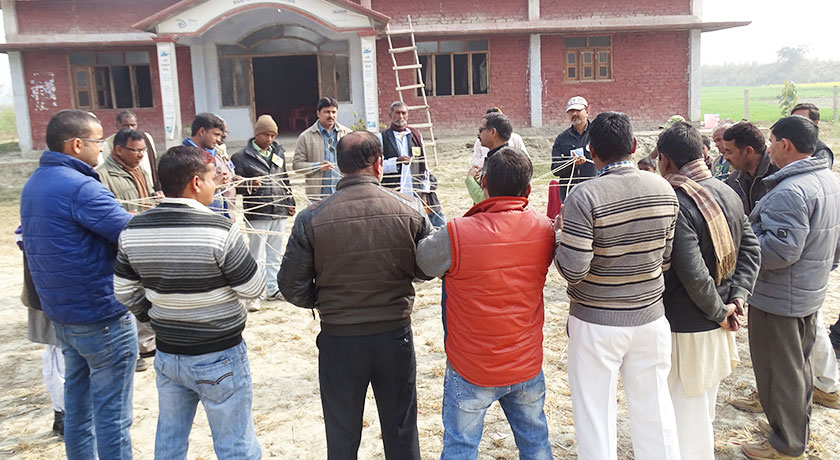 |
| Teachers were guided on the reporting of activities conducted by dolphin schools. |
 |
Dolphin school teachers’ review meet |
The Ganges river dolphin - conservation education programme is being implemented by CEE North in the Ganga basin, covering 20 locations in Uttar Pradesh and Bihar states. In these locations, dolphin school clusters have been formed where the dolphin clubs takes up activities at the school and community level. Teachers are invited for refresher meets to share their experiences and plan activities for the next year.
Three refresher meets were organised by CEE with the help of partner NGOs in Allahabad, Katerniaghat and Jarwal, Bahraich district. Over 90 dolphin school teachers participated in these meetings, organised in association with Vasera, Katerniaghat Welfare Society and Turtle Survival Alliance. Educational material was shared, and the teachers were guided on the reporting of activities and initiatives taken by dolphin schools. In each meet, the lead school - as the dolphin education resource centre - shared their activities in the cluster.
CEE has developed an environment calendar on the core theme of dolphin conservation, for schools and other stakeholders. |
|
|
|
|
 |
|
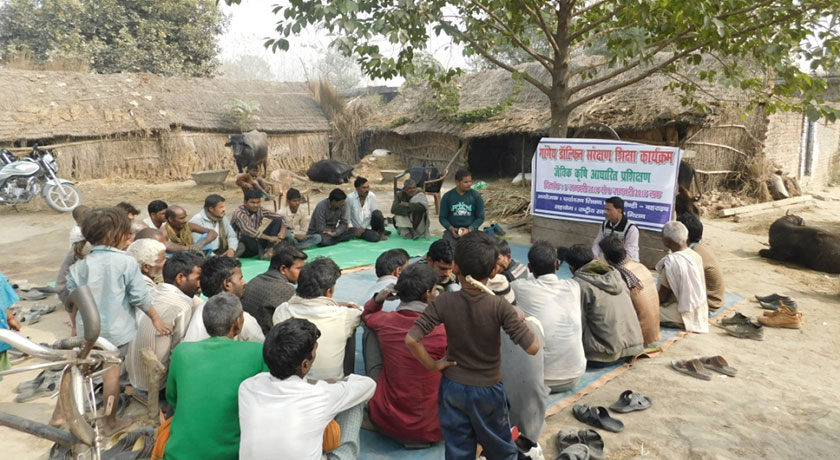 |
| Village level trainings familiarised the farmers with the techniques of organic farming. |
 |
|
Community activities in Dolphin villages |
As part of the Ganges river dolphin - Conservation Education Programme, CEE's Bahraich project office is working with 5 Gram Panchayats where organic farming practices are being promoted. To get the farmers familiar with the technique and practices of organic farming, village level trainings were conducted during the first week of January. These trainings were done in each of the project village and two trainings were done in the bigger village. The training was attended by over 180 farmers. Discussion on the current scenario of the use of chemical fertilizers and pesticides was held, where benefit analysis, along with its impact on human and rivers health, was emphasized.
Dolphin project locations being on river bank have broad riverbed. These river beds - generally unused land resource - are annually flooded and seasonally dry. Landless and land-poor farmers could use this land to cultivate seasonal vegetables. Keeping this in mind, CEE has initiated the demonstration of organically grown vegetables along with improved varieties of water melon and musk melon crop on the river banks of Ghaghra and Gandak in UP and Bihar. Riverbed farming has a very high cost-benefit ratio and a very low investment requirement. This farming has shown good results in Nepal. CEE also provided seed varieties recommended by ICAR-IIHR to the beneficiaries. |
 |
|
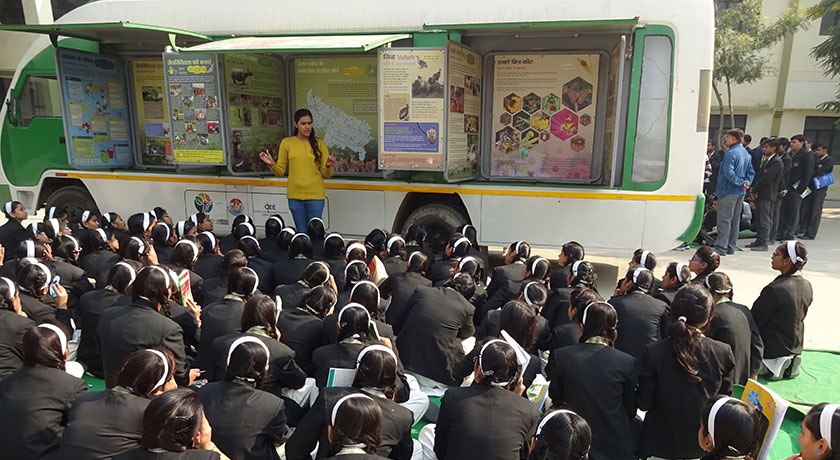 |
| Communicators interacted with the students and explained to them the concepts of biodiversity. |
 |
|
Prakriti bus in Bahraich |
Prakriti Bus, a mobile exhibition on the biodiversity of Uttar Pradesh, was taken to Bahraich district. As part of the Ganges River Dolphin Conservation Education Programme, with the support of NMCG, CEE is working with over 40 schools and 5 Gram Panchayats in Bahraich district.
The Prakriti bus visited riverside schools and the community to make them aware about river biodiversity and the importance of conservation. Communicators on the bus interacted with the students of different schools and explained to them the concepts of biodiversity and rich flora, fauna, with a focus on river conservation. Over 11,000 visitors, including students, teachers and community people, were benefited.
The communicators also explained the sustainable livelihood practices connected with river resources, to the fishermen community and the farmers. They learnt about the importance of conservation and the need to protect the dolphins. The villagers were mobilised to practice tree planting on marginal agricultural land, social forestry, plantation on uncultivated land, growing medicinal plants etc., as alternative sources for income generation. The villagers further interacted with the CEE team and learnt about the behaviour, common features and the importance of conservation of river dolphins, ‘ghariyals’, turtles, birds, etc.
Prakriti Bus is a joint initiative of UP State Biodiversity Board, Lucknow University and CEE North.
|
 |
|
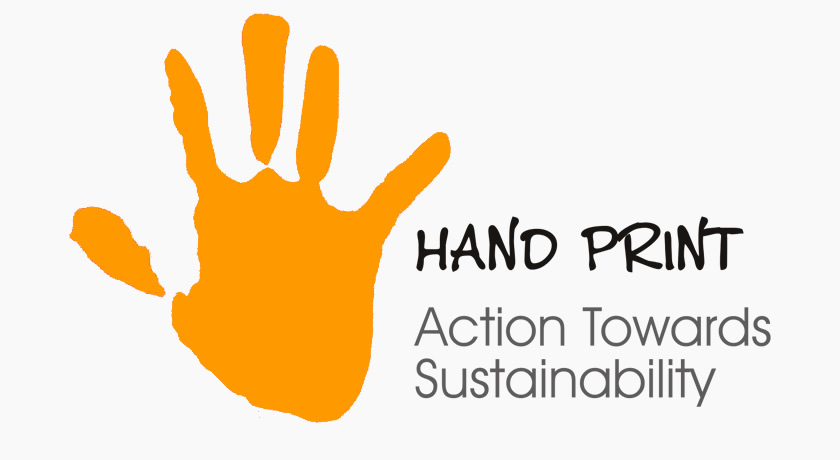 |
|
|
 |
|
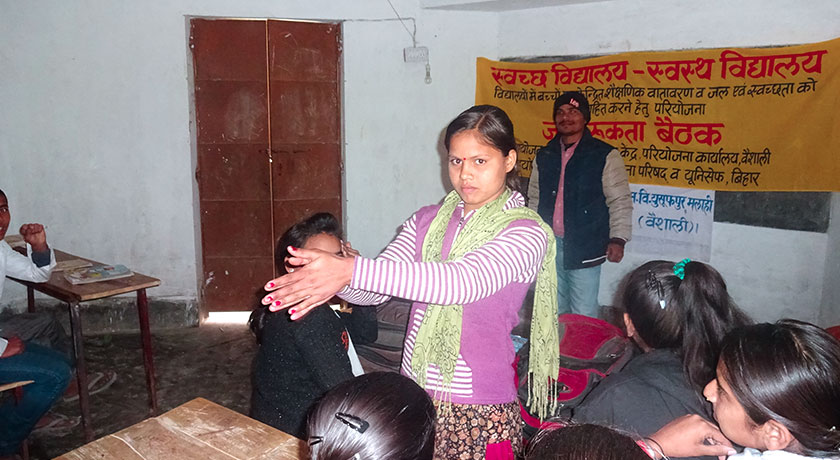 |
| The roles and responsibilities towards making a school and its system child-friendly were emphasized upon. |
 |
|
Sensitisation meetings conducted for Swachh Vidyalaya, Swasth Vidyalaya |
CEE Vaishali, under its Swachh Vidyalaya and Swasth Vidyalaya initiative, conducted sensitisation and orientation meetings to introduce various elements of the project to the school. These meetings were attended by SMC members, teachers, Child Cabinet and Meena Munch members. During the meeting, the CEE team briefed the members about their roles and responsibilities towards making a school and its system child-friendly.
For schools in Vaishali and the state-wide scale up, the CEE team has developed a programme brochure in Hindi and English, and a year planner showcasing CFSS elements. These are being disseminated in all the districts of the state, in collaboration with the education department. The project is supported by UNICEF and Bihar Education Project Council.
|
 |
|
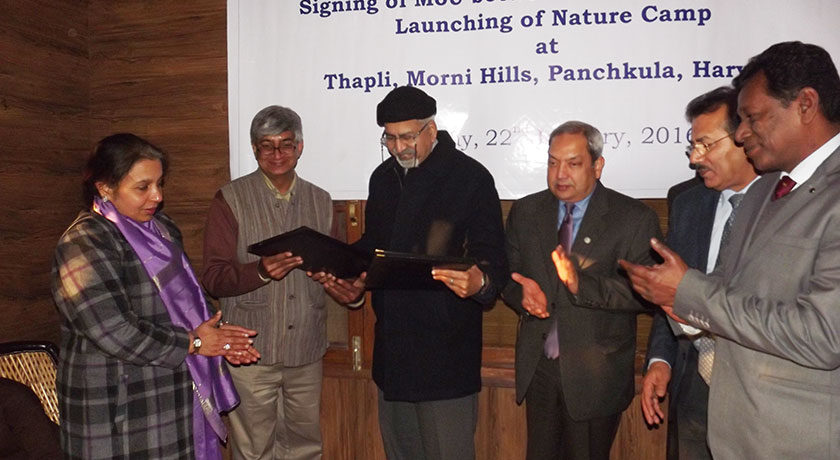 |
| The MoU focuses on promoting environment education and nature camping for school children. |
 |
|
MoU signed to promote environment education in Haryana |
On January 22, 2016, the Haryana Forest Development Corporation and Centre for Environment Education signed a MoU to promote Environment Education and Nature Camping for school children in the state of Haryana. The MoU was signed by Mr. P. P. Bhojvaid, MD-HFDC and Mr. Sharad Gaur, Programme Director, CEE. Mr. Amit Jha, Principal Secretary (Forests) Haryana, PCCF, Haryana Ms. Amrinder Kaur, Mr. Vivek Saxena, CGM (HFDC) and other state officials graced the ceremony.
On this occasion, an inaugural nature camp was also conducted at the Nature Campsite Thapli, Panchkula (HR). A four member team of CEE comprising of Sharad Gaur, Anil Daeeyya, Sunil Yadav and Hardeep Singh helped conduct this event.
A group of 30 students and three teachers from the Government High School, Paploha participated in the day long nature camp. The camp programme included sessions on composting and the usage of organic manure, medicinal plants – their uses and gardening, a guided walk of a mountain village ecosystem, the geology and hydrology of the Shivaliks, local natural history, local species of forest tree and their propagation through natural as well as grafting techniques.
A drawing competition was also organised for the students, on their day’s experience. Prizes were given to the top three winners by HFDC. |
 |
|
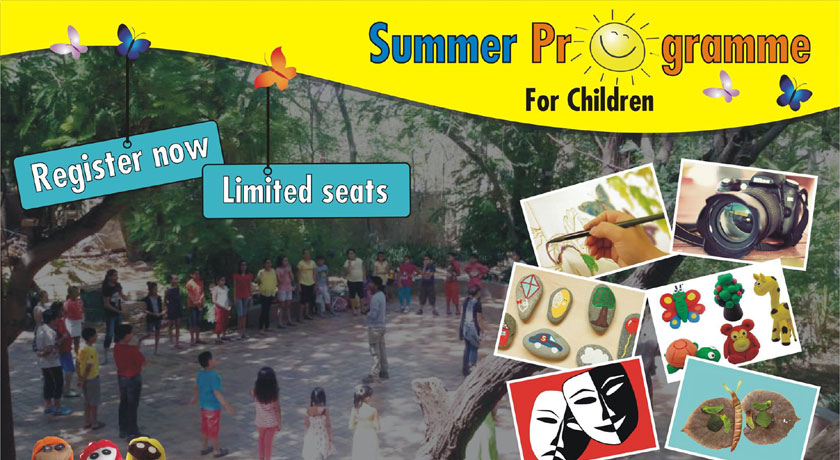 |
 |
Summer Programme for Children |
CEE-Ahmedabad announces month-long summer programme for children, starting from May 8, 2016. Kids, in two batches of 5-8 and 9-13 years, will be engaged in fun-filled skill-based activities, including theatre and performing arts and going on field visits.
|
|
CEE is the ENVIS centre on Environmental Education (EE). As an ENVIS centre, CEE caters to the information needs of environmental educators. Write to the CEE ENVIS Centre at [email protected]
|
 |
This message is sent to you by Centre for Environment Education, Thaltej Tekra, Ahmedabad, India and delivered by [email protected]
© CEE 2016 Editorial: Bindu Prashanth, Divika Hinger Design: Pankaj Gorana |
|
|
|
|